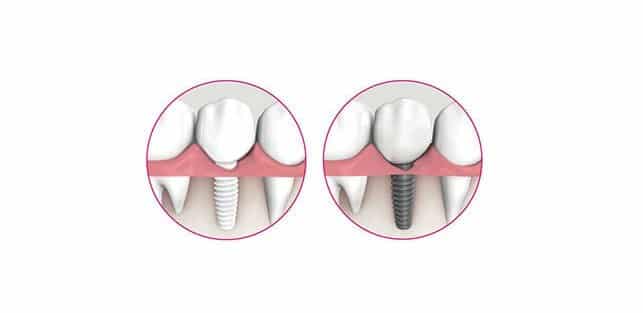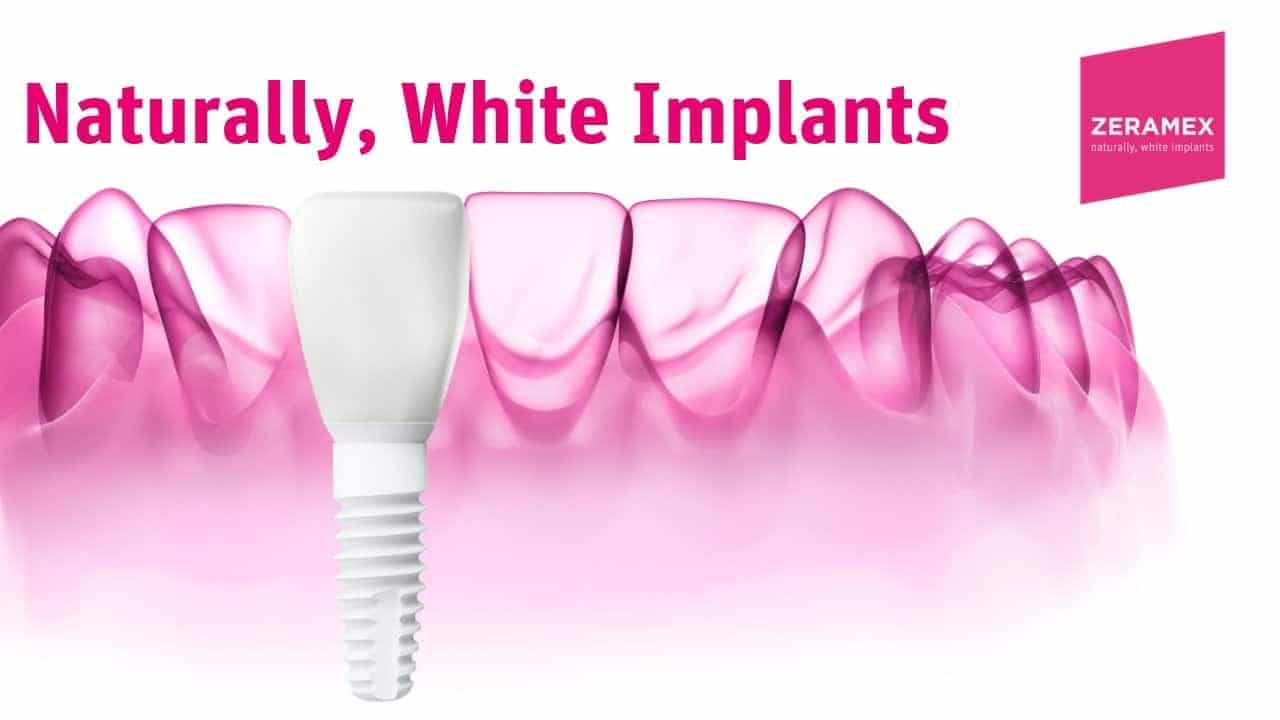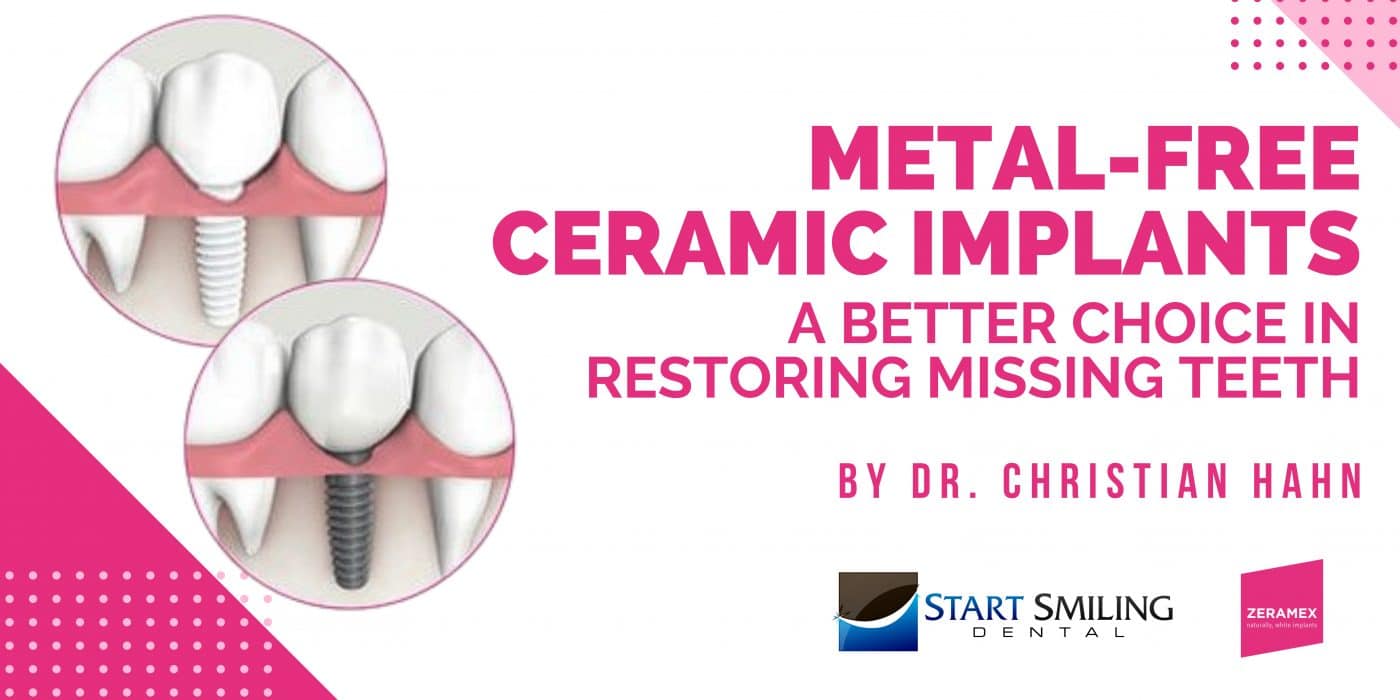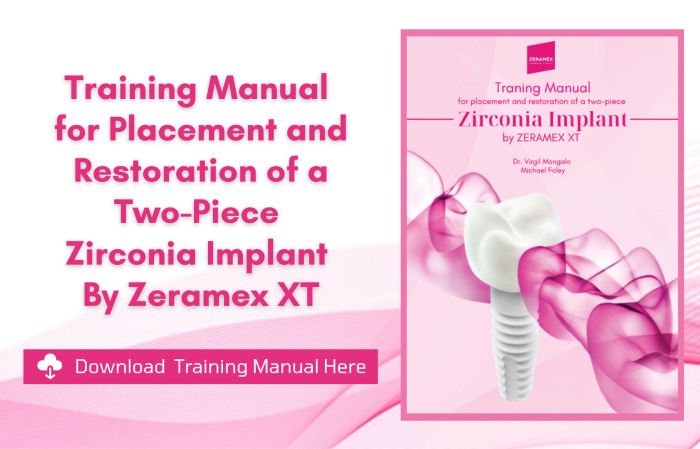What are Zirconia/Ceramic Implants?
Dental implants are essentially are new tooth roots that are placed in the bone and then new teeth can be attached to them. Titanium implants have been the standard since the 1960s and have a very good success rate, but over the last 60 years our understanding of how dental implants and the body interact has significantly grown.
True zirconia implants were introduced in 1987 and are widely used in Europe with very similar success rates as their metal, titanium counterparts. They are white in color, are made out of zirconium and oxygen and contain no metal.
Literature review from 1975 to 2015 showed that some of the properties of zirconia seem to be suitable for making it an ideal dental implant, such as bio-compatibility, osseo-integration, favorable soft tissue response and aesthetics due to light transmission and its color.
The gums grow onto this metal-free implant solution particularly well, thereby closing the gap for any bacteria that could enter into the blood circulation via the gums.

Zirconia Implants are the color of a natural tooth vs metal implants which give a dark shadow at the gum line.
Advantages of Zirconia Dental Implants compared to Titanium
- Aesthetics – thanks to their white color, zirconia implants do not have any dark shadows showing through the gums. This can be a game changer in the esthetic zone, where titanium implants carry a risk of tissue grayness showing through the gums.
- Titanium Allergy or Metal Allergy – Allergy to titanium or other metals present in titanium implants is not a concern with zirconia implants. Zirconia implants are the only metal-free option in dentistry, and it is becoming clear that the body is not designed to interact with metal on a natural basis. Titanium dental implants are not only made of titanium! In one study looking at 5 different implants, the following metals were present in addition to titanium: Iron, Manganese, Chromium, Tin, Vanadium, Molybdenum, Zirconium, Niobium, Zinc, Tungsten, and Nickel (Chaubey et al., 2019). Implants are not labeled with their exact composition, making it impossible to know which metals you are being exposed to. In short, Zirconia/Ceramic implants do not release any particles into the tissue, therefore eliminating the risk of allergies or intolerance developing.
- Lower plaque accumulation around implants – some studies have suggested less plaque formation and infections around zirconia implants. The tissue connection to zirconia is much more favorable than to metal.
- Zirconia resists corrosion significantly better
- It is a poor electrical and thermal conductor – There is no concern of a galvanic or battery effects with zirconia implants as compared to titanium implants.

Zeramex Implants are the closest appearance to natually white teeth,
Disadvantages of Zirconia Dental Implants compared to Titanium
- Limited variety of components and designs– Zirconia implants are still relatively early in their development cycle and a 2-piece screw-retained abutments system has only become available in the US market in 2019 – the Zeramex system.
- Long Term Success– The long-term performance and success of zirconia implants does not yet have the history that titanium does, as titanium implants have been around longer.
- Strength and Fracture Resistance – Zirconia is more brittle than titanium and has lower fracture strength and flexural strength.
- Not yet practical for complex oral rehabilitations or implant supported dentures.
Zirconia implants are not ideal when treating patients who are missing all of their teeth or need all of their teeth replaced with implant dentures because the systems are still evolving and there are significantly less components available to date.
Are Zirconia Dental Implants Safe?
Zirconia is a safe, and in many ways, superior alternative to Titanium implants. There are some reasons to consider sticking with titanium implants when it comes to larger cases due to the availability of components. It is important to understand the potential benefits, limitations, risks, and other factors associated with both zirconia and titanium implants before proceeding with treatment, and for that reason it is always recommended that you consult with a dentist that is very familiar with both systems.

